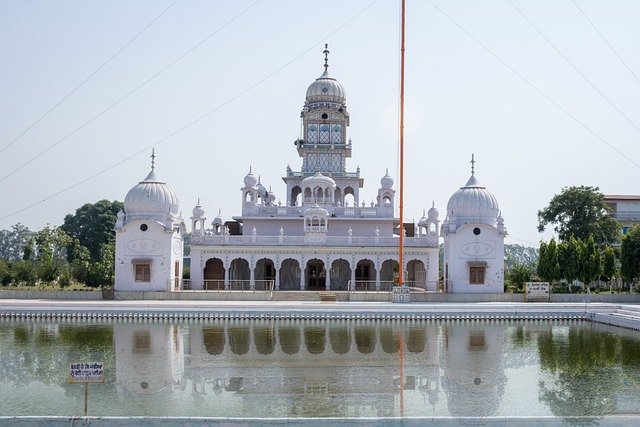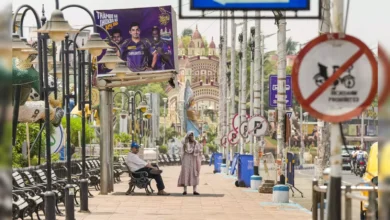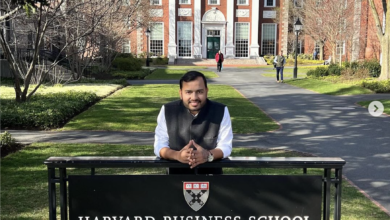Same-sex marriage at gurudwara ignites frenzy
The granthi who officiated the wedding has apologised, but Dal Khalsa and SAD(A) are adamant about taking severe measures.

On September 18, a same-sex marriage was held at Gurdwara Sri Kalgidhar Sahib in Bathinda, Punjab. As a result of the disputes, the granthi who performed the Anand Karaj (a Sikh marriage ceremony) and the management committee of the shrine have been called into question by the Shiromani Akali Dal (Amritsar) and Dal Khalsa.
SAD(A) and Dal Khalsa released a copy of the marriage certificate that the gurdwara had produced, alleging that it violated the Sikh religious code of conduct. They also claimed that they had written to Takht Damdama Sahib jathedar to request that action be taken against the granthi and the gurdwara management committee.
The granthi who officiated the wedding has apologised, but Dal Khalsa and SAD(A) are adamant about taking severe measures.
According to Parminder Singh Balianwali, president of SAD (A), the Shiromani Gurudwara Prabandhak Committee should file a complaint against the two individuals. “If the SGPC delays action, we will approach the police,” Balianwali added.
What is lawful and what is not for same sex marriage
It is not the first time that a same-sex marriage has taken place in a Gurudwara. Akal Takht called for a serious note of a homosexual union supported by Sri Guru Grant Sahib Saroop in the USA in 2020.
The Anand Marriage Act governs Sikh marriages in India. In India, same-sex unions are currently forbidden. Earlier this year, the Indian Supreme Court delayed judgement on the validity of same-sex unions.
According to the Centre, the “legislative understanding of marriage in the Indian statutory and personal law regime” relates to marriage between a biological man and a biological woman. The Centre has stated its opposition to the legal recognition of same-sex marriage. The government has once again stated that it opposes the recognition of same-sex marriage because it believes that it will “cause a complete havoc with the delicate balance of personal laws in the country and in accepted societal values” even though it did not object to the decriminalisation of gay sex when the issue was brought before a five-judge Constitution Bench in 2018.
The Indian Penal Code (IPC) Section 377, which criminalised homosexuality, was partially reversed by the Supreme Court in 2018, making same-sex relationships legal but weddings still remain illegal. The Delhi High Court did not legalise same-sex marriage in 2017, but did rule that same-sex couples had a right to be in committed partnerships.
Mohan Bhagwat, the sarsanghchalak of the Rashtriya Swayamsevak Sangh (RSS), on the other hand, outlined the perspective of his organisation on gay rights, stating that the RSS wants members of the LGBTQ community to have their own private space and feel like they are also a part of society. This represented a change from the RSS’s opposition to the decriminalisation of consenting gay sex in 2018.

Conclusion
The old beliefs about Indian society have been contested in a number of rulings. Live-in relationships are a well-known example of a societal reality that is still being resisted and is seen through the prism of morality.
A sizable portion of Indians are still opposed to the newer concept of same-sex marriage, despite a small percentage of them accepting it. Considering the fact that films like “Shubh Mangal Savdhan” have helped to normalise it somewhat in Bollywood and regional cinema, reluctance still exists.
People who advocate for “LGBT rights” want the same freedoms that non-LGBT people have.
For instance, being straight wouldn’t prevent someone from getting married.
There are more, but this illustrates the point. LGBT campaigners argue that there should be no legal restrictions on gay marriage, which goes against the traditional view of Indian society. The question that emerges in this situation is whether Indian culture and the constitution will gradually accept this development, just as they did for “live-in relationships,” which also used to be frowned upon but are now more widely accepted. And if such modifications ever take place, will they be for the betterment of the society?
Please, also have a look into : Delhi High Court rules wilful denial of sexual relationship by spouse as cruelty



